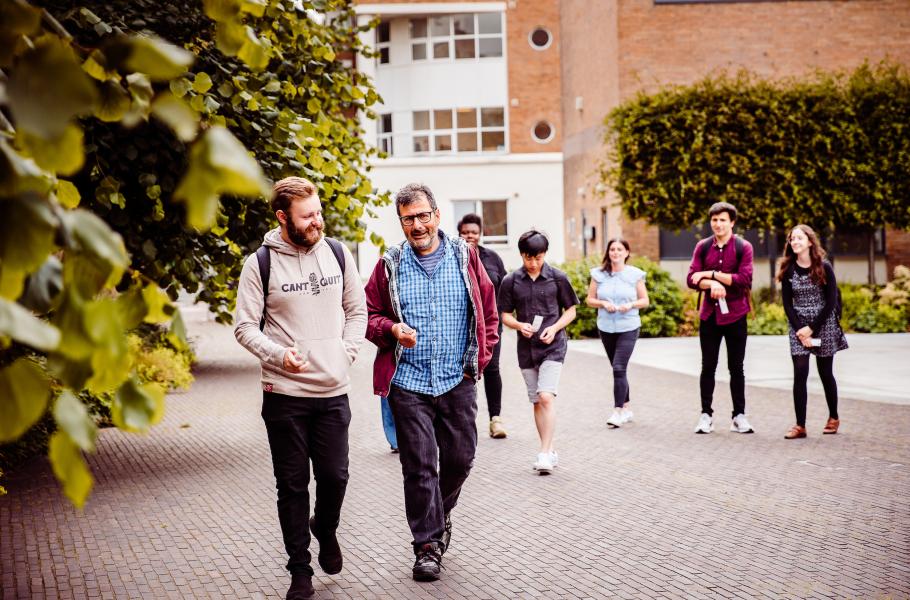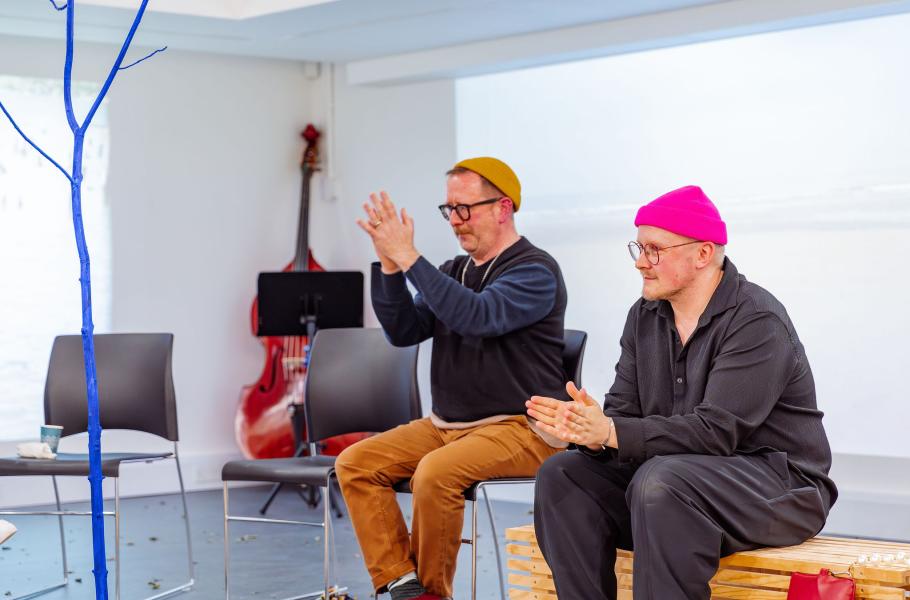What Does it Mean to be Clean?
Lauren Velvick
In October we hosted our annual DIY programme, this year with José García Oliva with ‘White Vinegar’, in partnership with the Live Art Development Agency.
The programme invites proposals for projects towards artistic development in Live Art, led by ideas. Rather than a description of an artform or discipline, Live Art is a way of thinking about what art is, what it can do, and where and how it can be experienced.
José’s artistic practice is socially engaged and examines the invisible or concealed work that goes on behind the scenes, to maintain everyday life as we know it. During the unprecedented developments of 2020 this work; such as cleaning, deliveries and call centres has become more vital than ever.
Born in Caracas, Venezuela, José has studied at the Royal College of Art in London and describes realising that the first South American people he encountered in the UK were the college cleaners, which inspired further investigations into how work relates to identity, particularly the kinds of work where one person is serving another.

In his degree show project, ‘How May I Serve You’, José collaborated with Saadia Abbasi and Malik Ayaz, two call centre workers in Pakistan. Responding to the constraints of making live art during lockdown and social distancing, José set up a live-chat platform disrupting expected relations so that ‘the visitor is now a user, and the gallery is now a device’, humanising those who are usually hidden behind the façade of corporate technology.
For the project with Lancaster Arts, ‘White Vinegar’, José worked with nine participants drawn from both our networks in Lancashire and his networks in London. While the pandemic has been particularly detrimental to live practices, with openness and creative thinking we were able to make the most of this opportunity. Holding the workshop online over four afternoons meant that participants based in different parts of the country could work together.
Asking ‘what it means to be clean in a post pandemic world’ José and the participants discussed some foundational texts of ‘maintenance art’ such as the writings of leading New York artist Mierle Laderman Ukeles who asked “After the revolution, who’s going to pick up the garbage on Monday morning?”. Maintenance art is a movement that foregrounds the care that is needed to keep things in working order, including cleaning. Each participant developed their own new maintenance performance, to be delivered over zoom, with an innovative range of formats from games to songs.

‘White Vinegar’ began from a consideration of windows as filters through which we encounter the world. Influenced by the different life experiences of the participating artists, José described how the discussion turned towards gender and race, and how these factors influence a person’s sense of and access to cleanliness. In the above image from Diego Valente’s response to ‘White Vinegar’, the idea of cleaning the filter through which we see the world is linked to the daily act of cleaning contact lenses.
" It was a unique opportunity to have an open space to meet, debate, experiment, and expand collectively a topic we were all interested in. DIY allowed us to have the time to exchange ideas and learn from one another using Live Art as a catalyst tool.” - José García Oliva
It was striking how each participant’s final performance was completely different, so much so that it was surprising they came from the same brief, but our experiences of cleanliness and cleaning are so personal that it makes sense!

José García Oliva is a Venezuelan–Spanish artist based in London whose practice navigates the collision of both identity and places. This interrelationship is explored through the lens of migration in its socio-economic and political context; the ashes of post-colonialism — especially from South America — and its echo in Europe. His practice is research-led and situated, taking the form of participatory performance, installation and drawing.
Lauren Velvick is the Lancaster Arts Associate Creative Producer




